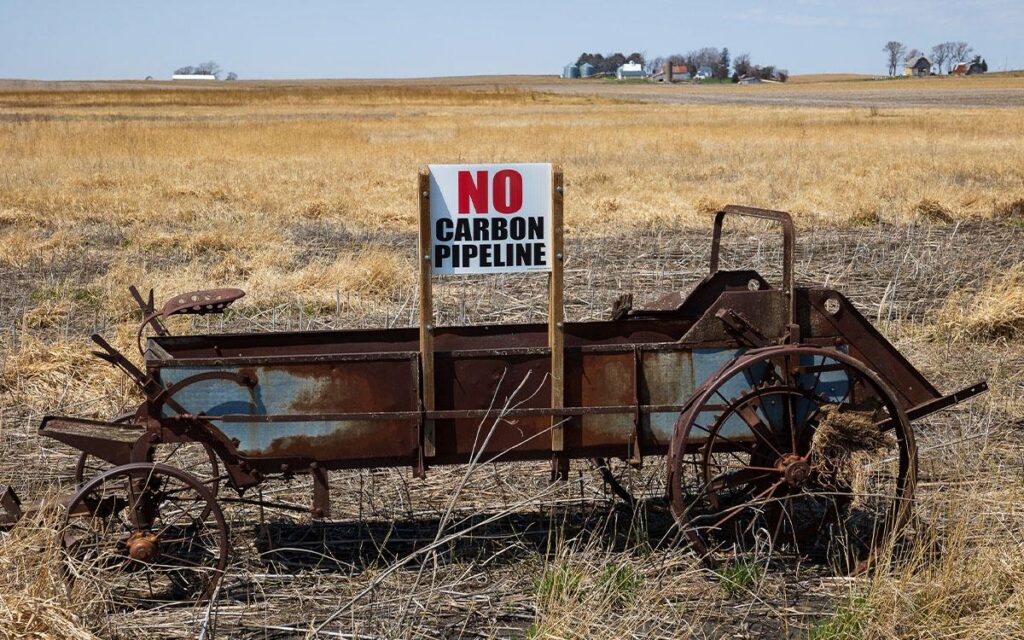Industry Influence Stalls Anti-Pipeline Legislation in Iowa Despite Widespread Opposition
In Iowa, wealthy pipeline interests appear to have a significant influence on the state’s most powerful lawmakers, leading to a years-long battle against a sprawling carbon dioxide pipeline project designed to traverse the state. Kim Junker, a local farmer who owns land in Grundy and Butler Counties, describes this as a “David versus Goliath” fight, with the irony that the opposing side—consisting of farmers, landowners, environmentalists, county supervisors, and attorneys—outnumbers the proponents.
Junker is among the Iowans challenging the pipelines and the use of eminent domain to seize people’s land for these projects, a coalition that crosses all party lines. She identifies as a Republican-raised conservative who is also a conservationist.
An anti-pipeline bill that was popular with the public was in front of legislators this year. It aimed to safeguard landowners’ due process rights by allowing them to challenge eminent domain requests in court earlier in the permitting process. The bill passed the Republican-majority Iowa House of Representatives in March by an 86-7 vote, demonstrating strong bipartisan support. However, it was killed in the state Senate before it could receive a floor vote, just like its predecessor last year.
Summit Carbon Solutions, the company behind the current pipeline plans, is owned by one of the state’s largest GOP donors, Bruce Rastetter, also one of Governor Kim Reynolds’ biggest benefactors. This fact is not lost on Iowans, many of whom view Rastetter’s influence as a barrier to the anti-pipeline bill’s success.
The CO2 pipelines in question form part of a carbon capture and storage (CCS) project, aiming to capture carbon emissions from ethanol plants across the states and pipe them out for deep underground storage. There are many reasons why CCS pipelines may not be the best solution for curbing carbon emissions. One concern is the immense pressure required to liquefy CO2 for pipeline transport, which is three times the pressure needed for liquefying natural gas, significantly increasing the danger of pipeline ruptures.
In 2020, a CO2 pipeline rupture in Satartia, Mississippi led to more than 200 evacuations and 45 hospitalizations. Three years later, some residents reported still dealing with residual health issues like severe asthma attacks, headaches, muscle tremors, and trouble concentrating.
CO2 pipelines can also damage the soil and reduce crop yields, a significant concern for farmers like the Junkers. Furthermore, the potential loss of their land is a particularly painful threat. Junker argues that if these eminent domain claims were for a public good, such as a road or bridge, it might be a different story. “They’re going to use our tax dollars to steal our land from us… They’re getting all these tax credits and subsidies to do this. We pay for that,” she says.
Despite the challenges, the Iowans fighting the pipelines and the use of eminent domain for their construction are extremely organized. They are making progress and growing their movement across different communities and viewpoints, giving hope that they will ultimately win.
Pipelines, dirty fuels, and money in politics are some of the related topics you might find interesting.
Original Story at www.sierraclub.org
